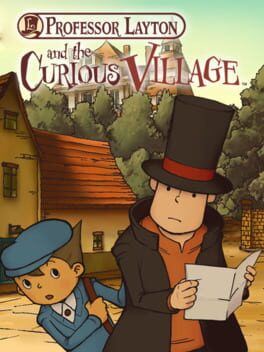Visual novels are often dismissed as low-effort titles, but it’s important to recognize the role they play in the modern gaming landscape. With the classic adventure genre being functionally dead, visual novels have taken their place as the format of choice for mixing a focused narrative with thoughtful gameplay. This can come in the form of something like Danganronpa, where the gameplay is detective work directly linked to the events of the story, or something more like Professor Layton, where its library of puzzles are only loosely contextualized within the narrative. In both cases, it’s a tough balancing act to ensure each part isn’t holding back the other, with riddles that are either too scarce to appeal to puzzle lovers or too frequent to maintain a good narrative pace. Layton’s approach heavily favors the puzzle side, but it made some smart concessions with its story to ensure everyone could enjoy the game. While it does require you to complete a certain number of puzzles, players have the freedom to skip the ones they’re stuck on, and since they’re given by townsfolk who may be unavailable at certain times, missed puzzles are conveniently moved to a centralized location at the end of each chapter. On the other side, the story has a lot of intriguing little mysteries, but there’s never a time where you have to sit and listen to people chat for minutes at a time. The plot is free of unnecessary drama, acknowledging that the central thread of the game is in solving mysteries, not character conflict. Characters are introduced and given a few sentences of establishment, then they reveal a new story detail, and present a new puzzle. It’s a concise way of keeping everyone happy, especially when combined with the aforementioned puzzle streamlining. The only problem the game really has is how, in a struggle to come up with 120+ unique puzzles, it flips from logic problems to semantic riddles without warning, occasionally cheating players with a deliberately misleading premise. These are very much the minority however, and the quality speaks for itself when someone who’s close to double the target age could still enjoy the game and have to spend time working out the tougher puzzles. The best way to sum it up would be that it’s just like the animated movies it seeks to emulate, in that its earnest simplicity could charm just about anyone, even if it probably won’t end up being an all-time favorite.

DrDelicious
3 years ago
Finally, someone gets it.